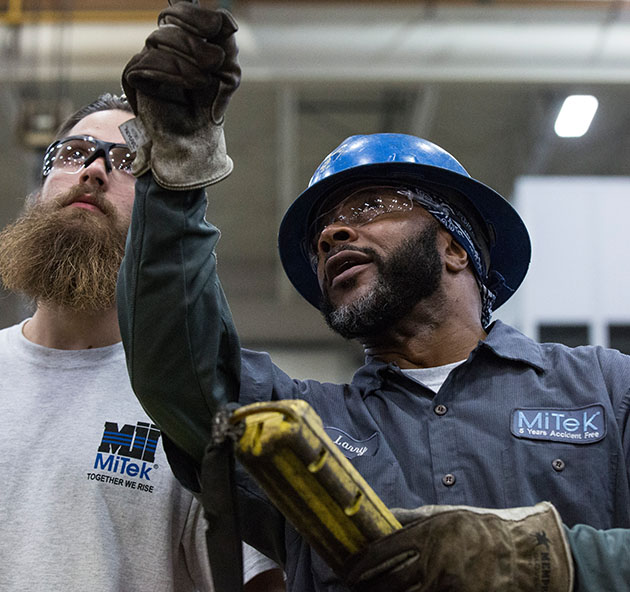Machinist
Create the world around us.
Machinists are creators of everything from car engines to airplane wings to office equipment and beyond. Looking for a path where you’re challenged to think innovatively, have ample job advancement opportunities and the chance to work with your hands and cutting-edge technology?
The Perks
This path is perfect for those who like technology but also enjoy creating and building things with their hands. Machining is crucial to many exciting fields like sporting equipment, aerospace, mining, automotive and more – so you’ll be in high demand!
18
Months
The average time investment required to become a machinist is just 18 months
10%
Growth
Machinist jobs are projected to grow by 10% (from 2014 to 2024)
$40000
Salary
Regionally, the average base machinist salary is around $40k (and can increase to $70k+)
Machinist
MiTek
The satisfaction of taking a useless block of aluminum, titanium, etc. and making it into a tool, or part of a greater machine gives you a sense of ownership, and pride. That would just be a block of material had you not brought your skills to bear and rendered it into a useful item.

What Do I Need?
Machinists are highly skilled, detail-oriented and mechanically inclined. It’s an exciting, fast-paced job with opportunities to advance into tool and die making, CNC programming, managerial or supervisory positions – or even working for yourself after you’ve gained experience!
High School Diploma
You must have a high school diploma or the equivalent of a high school diploma in order to pursue this path.
High School Diploma
You must have a high school diploma or the equivalent of a high school diploma in order to pursue this path.
High School Diploma
You must have a high school diploma or the equivalent of a high school diploma in order to pursue this path.
Creative
You need to think creatively to determine the most effective and efficient way to size a given material into the desired shape, and use a variety of tools.
Math Skills
All interactions with manual or CNC machines with a blue print require a machinist to use mathematics.
Tech/Machine Savvy
You should be willing/able to learn how to use certain analytical or scientific software, CAD/CAM software and similar technologies and tools.
High School Diploma
You must have a high school diploma or the equivalent of a high school diploma in order to pursue this path.
High School Diploma
You must have a high school diploma or the equivalent of a high school diploma in order to pursue this path.
High School Diploma
You must have a high school diploma or the equivalent of a high school diploma in order to pursue this path.
Creative
You need to think creatively to determine the most effective and efficient way to size a given material into the desired shape, and use a variety of tools.
Math Skills
All interactions with manual or CNC machines with a blue print require a machinist to use mathematics.
Tech/Machine Savvy
You should be willing/able to learn how to use certain analytical or scientific software, CAD/CAM software and similar technologies and tools.
Your Resources
Loading...

Hydromat Apprenticeship Program

